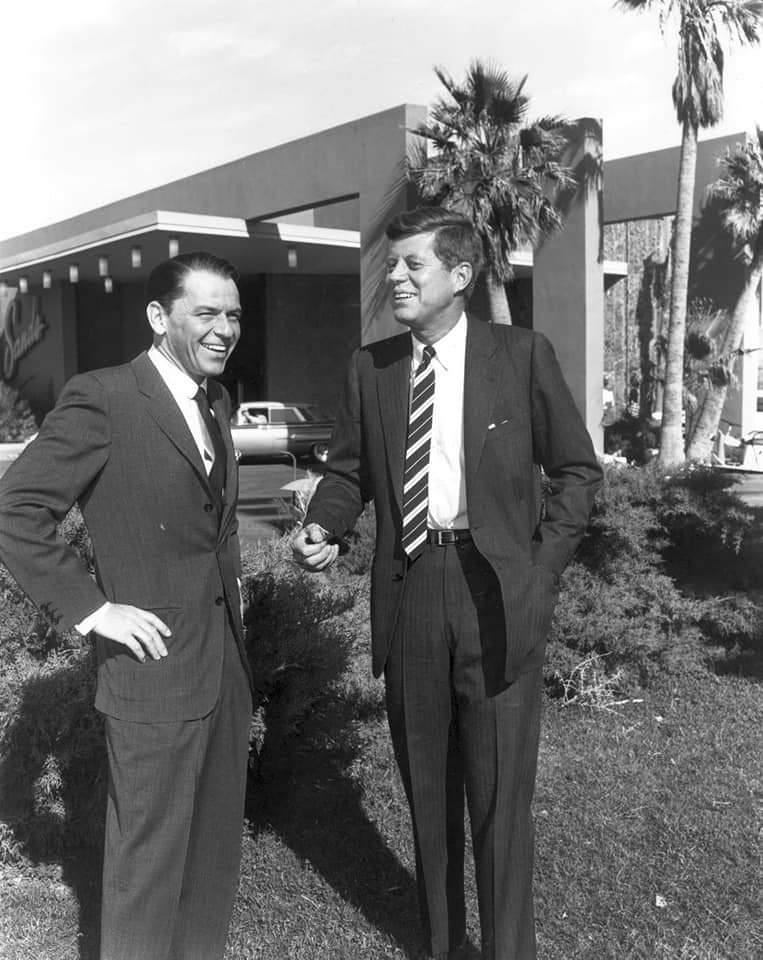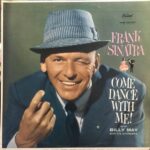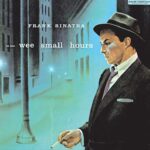
THE CHAIRMAN AND THE PRESIDENT
By Mahnuel Muñoz
On Friday, November 22, 1963, President John Fitzgerald Kennedy was assassinated in Dallas. The event has not been, 55 years later, sufficiently explained beyond the numerous theories that have emerged taking the CIA, the Freemasons or the mafia as authors.
We are going to talk, very superficially, about the relationship between Sinatra and Kennedy and the dangerous triangle they formed with organized crime, and we will take as a basis the information collected in the book “Sinatra: His Way” by Randy Taraborrelli.
The relationship between John Fitzgerald Kennedy and Frank Sinatra was based on their mutual fascination with their circles of power. JFK was a great admirer of Sinatra’s character and talent, and also of the irresistible glamor of the world around him. Frank, for his part, had immersed himself fully in Kennedy’s electoral campaign in 1959, when he presented his candidacy for the presidency, and he did so out of political conviction, an uncontrollable attraction for power, and also at the personal request of Joseph , the patriarch of the Kennedys.
Sinatra provided great service to JFK’s election campaign, raising funds at concerts and contacting his most influential friends to drum up support. Frank always overestimated his relationship with JFK and his family, who deep down never considered him much more than a common thug whose fame they could take advantage of.
The most controversial and legendary gesture that Sinatra made in favor of the Kennedys was his alleged conversation with Sam Giancana, head of the Chicago mafia, in order to obtain favorable votes in the primaries to obtain the Democratic nomination for JFK. . However, after winning the primaries and reaching the White House, the Kennedys began to find it inappropriate to be associated with Sinatra and his underworld friends, although they did not express it publicly, since Sinatra’s popularity was being decisive in the process.
In the late 1960s, President Kennedy appointed his brother Robert as attorney general, who soon became the scourge of organized crime. Sam Giancana and his partners felt betrayed after working to get votes for JFK, and saw their well-being and his business threatened. Over the next two and a half years, Giancana embarked on a personal crusade against the Kennedys and attempted to involve Frank Sinatra in his plan, but he did not agree, angering the mobster.
Frank paid the price for his friendship with Giancana in March 1962. At that time, JFK planned to stay at Sinatra’s house while he remained on the West Coast of the United States. An expectant Frank spent hundreds of thousands of dollars renovating his Palm Springs home, including a helipad.
When FBI learned that Judith Campbell, Sam Giancana’s girlfriend at the time, was also sleeping with President Kennedy, and that it had been Sinatra who had introduced them to each other, Bobby Kennedy canceled John’s visit to Sinatra’s house. , choosing instead the house of Republican Bing Crosby. The official explanation was that Crosby’s house offered more security. That was the coup de grace to the relationship between Sinatra and the Kennedys.
The news of JFK’s death deeply shocked Sinatra. He was in a cemetery filming “Four Gangsters of Chicago” when he found out. He would have liked to attend the funeral, because he still felt affection for the family despite what happened. But Frank rarely attended these ceremonies because he couldn’t stand the morbidity.
The end of the JFK era was also a turning point in Frank’s personal and professional life, something we can talk about in other posts.
















